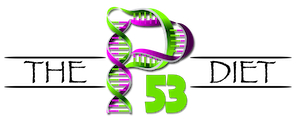- Your cart is empty
- Continue Shopping
1500 Calorie P53 Diet Plan
If you choose this 1500 calorie weight loss plan you will see a more aggressive weight loss as compared to the other P53 Diet plans except for the 1000 calorie diet plan. This plan is a safe weight loss plan. You should plan to lose about 2 to 3 pounds each week. When eating a plant-based diet you will get the required nutrients your body needs. The recipes on this site are all safe and the nutrients your bodies need each day. Make sure that you follow the 20 steps of the P53 Diet. Following the P53 Diet plans will help lower your risks of certain cancers, and other aliments like type 2 diabetes. Remember you can’t expect results if you don’t follow the plan.
• 80% Carbs = up to 305 grams carbohydrates (Carbs contain 4 calories per gram)
• 10% Fats = up to 17 grams fats ( Fat contain 9 calories per gram) These fats should come from unsaturated fats.
• 10% Proteins = 37.5 grams proteins (Protein contain 4 calories per gram)
• Fiber = 21 grams – Fiber does not contribute to calories, should consume about 14 grams per 1000 calories.
• Added Sugars = Women <8 grams, Men <10 grams. These are max limits zero is best!
• Sodium = Both men and women <1,200 mg
Vitamins RDA
Vitamin A 5,000 IU
Vitamin B1 (Thiamin) 1.5mg
Vitamin B2 (Riboflavin) 1.7mg
Vitamin B3 (Niacin) 20mg
Vitamin B5 (Pantothenic Acid) 10mg
Vitamin B6 2mg
Vitamin B7 (Biotin) 300mcg
Vitamin B9 (Folate/Folic Acid) 400mcg
Vitamin B12 6mcg
Vitamin C 60mg
Vitamin D 400IU
Vitamin E 30IU
Vitamin K 80mcg
Minerals RDA
Calcium 1,000mg
Chloride 3,400mg
Chromium 120mcg
Copper 2mg
Iodine 150mcg
Iron 18mg
Magnesium 400mg
Manganese 2mg
Molybdenum 75mcg
Phosphorus 1,000mg
Potassium 3,500mg
Selenium 70mcg
Sodium 2,400mg
Zinc 15mg
Essential Amino Acids
- Leucine – Good sources of Leucine include pumpkin, seaweed, peas, sesame seeds, watercress, kidney beans, turnip greens, and legumes.
- Isoleucine – This amino acid can be derived from soy, cashew, rye, lentils, beans, cabbage, hemp seeds, spinach, chia seeds, and pumpkin.
- Methionine – Plant-based sources for vegans include hemp seeds, chia seeds, oats, seaweed, legumes, onions, raisins, cacao, wheat, figs, and Brazil nuts.
- Phenylalanine – Foods with a rich amount of this amino acid are seaweed, spirulina, beans, pumpkin, peanuts, quinoa, raisins, leafy greens, olives, figs, and berries.
- Threonine – Excellent sources of threonine include leafy greens, watercress, hemp seeds, chia seeds, quinoa, figs, avocados, raisins, sunflower butter, soybeans, almonds, and wheat.
- Tryptophan – Protein sources that are vegan-friendly include leafy greens, beans, lentils, peas, quinoa, beats, asparagus, soybeans, pumpkin, parsley, spinach, carrots, chia seeds, peppers, winter squash, and even fruits.
- Lysine – This amino acid could be found from spirulina, hemp seeds, parsley, avocados, lentils, legumes, chickpeas, watercress, and beans.
- Histidine – Excellent plant-based sources of histidine are legumes, cantaloupe, wheat, rye, chia seeds, seaweed, buckwheat, cauliflower, and corn.
- Valine – Foods that have a high content of Valine are spinach, broccoli, soy, peanuts, blueberries, figs, cranberries, oranges, avocados, and apricots.
- Arginine – (Conditional Amino Acid) Arginine is a conditional amino acid but our bodies need more of this amino acid. Good sources are pumpkin seeds, pistachio nuts, peanuts, soybeans spirulina, chickpeas and lentils.


